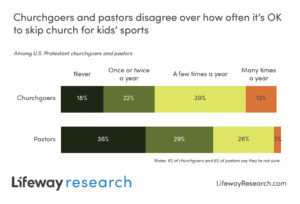
ATLANTA (BP)–Many people have financial problems these days. Will our children’s generation be better money managers? There is hope for the future if parents will take the first steps toward achieving the goal of influencing their children.
Children today often aren’t even sure what their parents do for a living. If parents have financial difficulties, the children may not even be aware of it. There is little direct correlation between work, money, and goods; and, some of us have lost track of the value of money. When we sign our names on credit card slips it doesn’t seem like we’re spending money. At that moment, we’re not. But reality sets in when we’re still making payments on items that are consumed, broken, worn out, or no longer “in.”
However, when we work hard and sacrifice in order to save for things we want, take time to make informed decisions, really understand the value of each dollar, and try to get the best value for our hard-earned money, we’re teaching our children something our culture knows little about.
If we show our children how to plan ahead and save, they’ll be less prone to emotional impulse buying. And, in doing so, they’ll see the results and feel good about themselves and the decisions they’ve made.
Want versus wait
Today, in places like Japan, where housing costs are astronomical, 90-year, three-generation loans are offered! Banks and merchants look for new ways to extend credit. Not many years ago a person couldn’t qualify for a credit card without a good income, but now unsolicited credit cards are given to high school students.
People are accustomed to living on assumed wealth rather than earned wealth, because people buy things they can’t afford with credit so they can have them now.
Creating needs to fill
One of the biggest offenders in today’s attitudes about money is the advertising industry. When advertising first began, its purpose was to tell people about the benefits of a product. Then, if consumers needed the product, they’d buy it.
Then the message changed from telling people about products, to trying to convince consumers of the need for products they never heard of. We’ve gone from “find a need and fill it” to “create a need and fill it.” People actually are unaware that their financial state is critical in deciding whether he or she should purchase something to satisfy desires. Get it now, and if you don’t have cash, buy it on credit.
Train up a child
When parents keep silent, advertising and the media become their children’s financial teachers.
Joshua led one of Israel’s finest generations. They took the Promised Land, but then they got so busy building a life there that they forgot to build a future for their children. The Bible says, “All that generation also were gathered to their fathers; and there arose another generation after them who did not know the Lord, nor yet the work which He had done for Israel. Then the sons of Israel did evil in the sight of the Lord and served the Baals, and they forsook the Lord, the God of their fathers” (Judges 2:10-14).
The Israelites began to lose the Promised Land, because they didn’t teach their children to follow God. Training children to follow God is the responsibility of parents.
God’s training method
But that means more than teaching children that the Bible is our guide and that God’s principles are the ones to follow. They need to know why.
God instructs us to teach children this way: “Children, obey your parents in the Lord, for this is right. Honor your father and mother [which is the first commandment with a promise], so that it may be well with you, and that you may live long on the earth. Fathers, do not provoke your children to anger; but bring them up in the discipline and instruction of the Lord” (Ephesians 6:1-4).
We need to show our children that God’s ways and principles work out best for us, because God is good and faithful and loves us.
Establish each financial principle with your children and give them the reason for the principle. With the reason, help them get to know the One who has established the principle. Then you can take what is learned and apply the principles to other areas of your children’s lives, using what they learned in finances as the example.
An indicator of the heart
Understanding biblical financial principles is a critical part of a child’s training, because our attitudes toward finances are indicators of our hearts. Jesus said, “For where your treasure is, there your heart will be also” (Matthew 6:21).
In Jesus’ teachings and parables — whether the rich young ruler, the lost son, the widow’s mite, the sheep and the goats, or many others — He taught that what we do with money and possessions is a direct reflection of what is in our hearts. A person’s checkbook is like a thermometer, measuring the heat of his or her love and commitment to God and His principles.
You “cannot serve both God and wealth” (Luke 16:13). You will serve one or the other, your heart will be devoted to the one you serve, and your actions demonstrate which one you serve.
A person’s heart will follow where his or her treasure has been buried. So, if we teach our children God’s way of handling finances, they’ll learn His principles and be better equipped to govern their whole lives according to those principles.
Begin today
Statistics show that 85 percent of the people who accept Jesus as Savior do so before the age of 18. And, it is estimated that more than 50 percent of the world’s population is now under the age of 18.
Christian parents need to work with their children and train them as godly leaders for the next generation. If their lives are grounded in biblical truths, they won’t be carried away like their peers, and they’ll be ready to reap the plentiful harvest of which Jesus spoke. Prepare your children with lives that are founded on the eternal principles of God, rather than on the passing fancies of popular thought.
Jesus said, “Where your treasure is, there your heart will be also” (Luke 12:34).
–30–
Burkett is chairman of the board of Crown Financial Ministries, which merged last year with the ministry he founded in 1976, Christian Financial Concepts. A Southern Baptist layman based in Gainesville, Ga., Burkett is the host of the national “Money Matters” radio program and author of two resources published by LifeWay Christian Resources of the Southern Baptist Convention: “How Much Is Enough? 30 Days to Personal Revival” and “Jesus on Money.”














